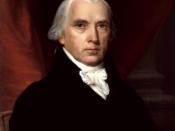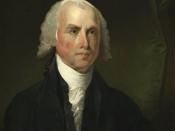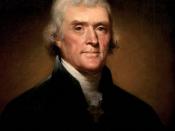At the onset of our nation's history, the government was divided primarily into two politcal parties, the Federalists and the Republicans. The Federalists, as the name implies, supported a strong national government and military, and a loose-constructionist view of the new U.S. Constitution. The Republicans, meanwhile, were advocates of states' rights and a weaker central government. The Republican and Federalist Parties, however, did not always adhere to these guidelines. Although Republicans and Federalists followed opposing doctrines, they each displayed both loose and strict interpretations of the United States Constitution based upon their needs at any given time.
The Democratic-Republican party of early American history was a staunch advocate of states rights and of a weak central government, mainly as a change from the British monarchy from which the nation had just earned its freedom. Thomas Jefferson, the third President of the US, was a leader of the Republican party until his death and a philosopher for an agrarian society in which the ordinary farmers held power.
Upon inauguration, Jefferson enacted a series of legislations that severely restricted the size and power of both the army and navy, and removed many of the courts established by his Federalist predecessor John Adams. Once, in response to requests for national aid to build roads and canals, he remarked to his cabinet, "...the states are independent as to everything within themselves, and united as to everything respecting foreign nations." (A) Jefferson, like his successor, followed the Republican belief that infrastructure was under the jurisdiction of the state, not federal, governments, and so should not receive federal funding. James Madison, elected in 1809, continued Jeffersonian policy with his veto of the Internal Improvement Bill of 1817 (H). The only exception to this policy was made for the Cumberland, or National Road in 1806, and both...


